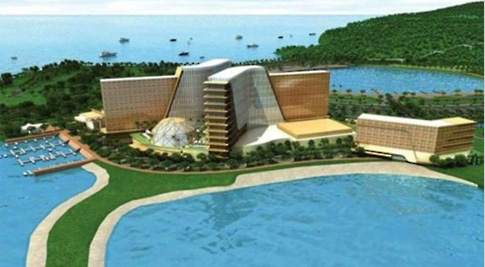NagaCorp, a Hong Kong-listed company controlled by Malaysia’s Chen Lip Keong that operates two casinos in Cambodia, announced last week that it is suspending work indefinitely on the planned Primorsky Entertainment Resort City project in Vladivostok, Russia, “until the circumstance is clearer,” the Phnom Penh-based firm said in a filing to the Hong Kong bourse late on Thursday, as reported by Reuters.
The statement, from corporate secretary Lam Yi Lin, made no mention of developments in Russia, which as of late has been strongly affected by economic sanctions by many countries after it invaded Ukraine. The statement said that the company was using the ‘force majeure’ clause set out in its investment agreement and suspended all operations.
In 2013, Nagacorp said it had agreed to invest a minimum of $350 million to build the project that is nestled on an area having views of the sea, an inland lake, and hills. As of December 2021, the company had topped off the project’s hotel building and finished the casino podium up to the second floor. Earlier, the company also forecast that the project would commence operation by 2022, as stated by Forbes.
Last year the company reported a net loss of $147 million due to restrictions on its operations in Cambodia and in February, a note by Morgan Stanley said delays in the company’s Naga 3 project in Cambodia and the one in Russia would dampen NagaCorp’s recovery.
The operator has been under the spotlight in the past weeks since workers of its NagaWorld casino in Cambodia organized a long strike calling for the reinstatement of 365 workers who refused to take the compensation offered in the termination package and also issued several demands related to severance, wages, and contracts. It has also added the release of its detained members to its list of conditions to return to negotiations. NagaWorld has denied allegations by the Naga workers union that it targeted members when it terminated more than 1,300 employees last year. It said it was forced to take cost-cutting measures amid the COVID-induced downturn, pointing to its net loss of $77 million in the first half of 2021.



